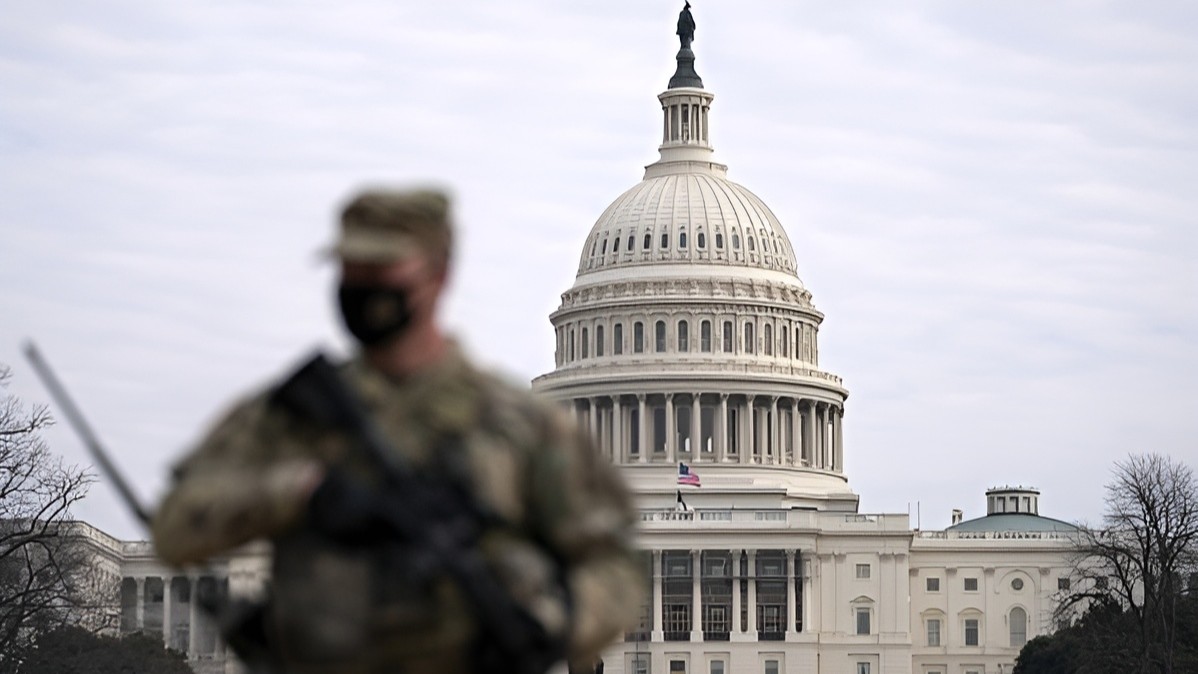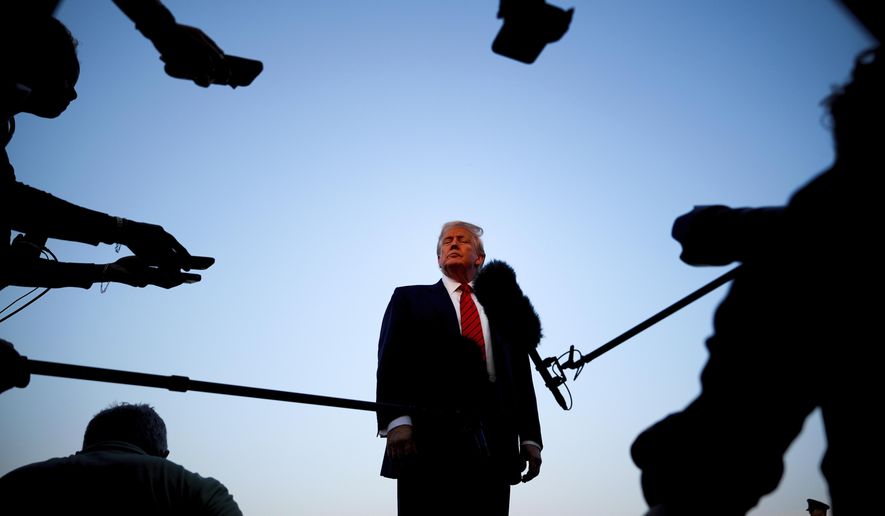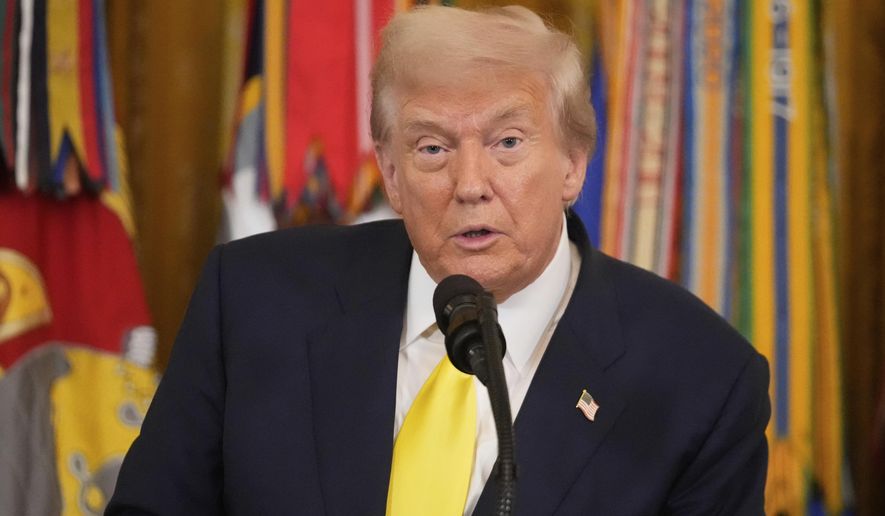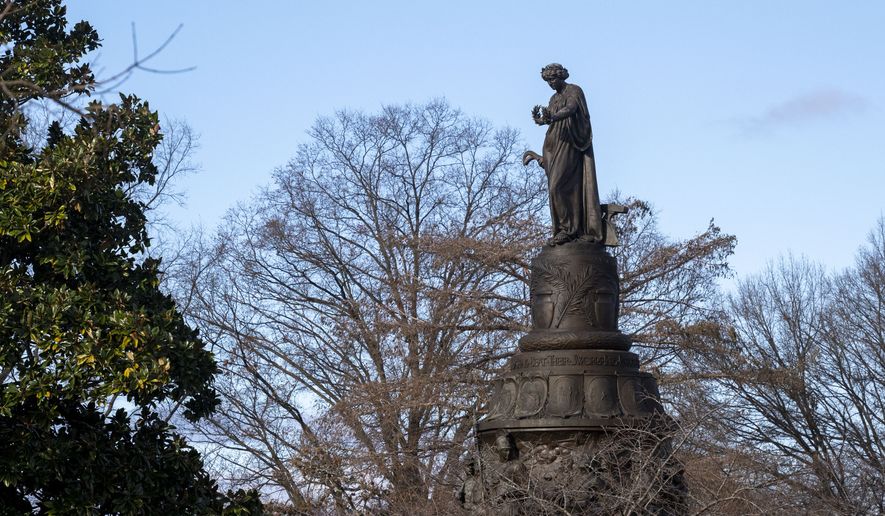Federal Government to Run District Police Department
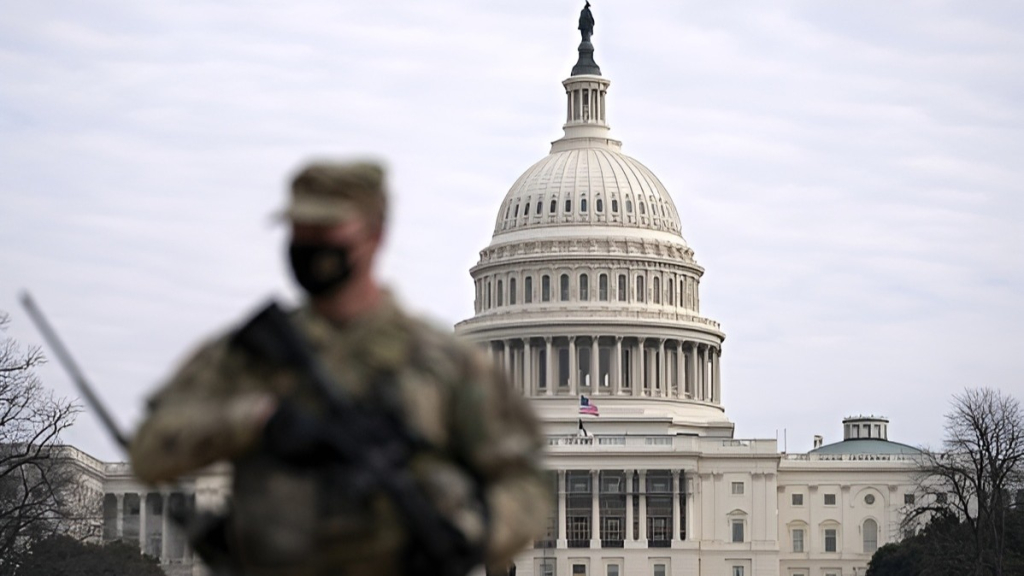
Jeff Mordock & Matt Delaney | August 12, 2025
(The Washington Times) — President Trump announced Monday that he would deploy about 800 National Guard troops to the District of Columbia and placed the city’s police department under emergency federal control in an unprecedented move to combat crime in the nation’s capital and remove homeless encampments.
The president said he might send federal authorities to other cities, including New York and Chicago, if local Democratic officials don’t crack down on what he called “out of control” crime in liberal jurisdictions.
Citing lenient prosecution of teens who commit crimes in the District, Mr. Trump said carjackings, assaults, armed robberies and other offenses have become commonplace in the nation’s capital. He said the District has become an unsafe city for American tourists and foreign dignitaries alike.
“Our capital city has been overtaken by violent gangs and bloodthirsty criminals, roving mobs of wild youth, drugged-out maniacs and homeless people, and we’re not going to let it happen anymore. We’re not going to take it,” Mr. Trump said during a White House press conference.
The president said his administration also will be “getting rid of the slums.”
Flanked by several Cabinet members, including Defense Secretary Pete Hegseth, Attorney General Pam Bondi and Interior Secretary Doug Burgum, Mr. Trump painted a hellish portrait of a city overrun by violence, homelessness, graffiti and vandalism. He said his actions were necessary to “rescue” a city that has become “out of control.”
Mr. Trump said he is prepared to send the military into the District “if needed.” Mr. Hegseth did not indicate which branches of the military could be deployed in the city but said “specialized units” could be mobilized.
“They will be strong. They will be tough and they will stand with our law enforcement partners,” Mr. Hegseth said.
Ms. Bondi said Monday morning that the federal takeover of the D.C. Metropolitan Police Department began immediately.
The president’s depiction of rampant crime in the District contradicts statistics from the police department showing that overall crime is down 7% from last year and violent crime is down 26%. However, the numbers are down from recent 20-year highs, such as 274 homicides in 2023 and a surge in carjackings two years ago that reached more than 100 per month.
“It’s not getting better, it’s getting worse,” said Mr. Trump, adding that he believes the District is fudging its latest crime statistics.
After Mr. Trump spoke, hundreds of demonstrators gathered at Lafayette Park just across from the White House to protest the National Guard mobilization.
Protesters chanted “Hands off DC” and “We must fight for our freedom.”
Mayor Muriel Bowser, a Democrat, acknowledged the previous crime spike but reiterated her belief that Mr. Trump still holds a COVID-era view of the city, when lawbreaking ran amok.
Nevertheless, Ms. Bowser said she will comply with the 30-day emergency order.
“The Home Rule charter requires the mayor to provide the services of MPD during special conditions of an emergency,” she said in an address after Mr. Trump’s announcement. “We will follow the law, though there’s a question about the subjectivity of that declaration.”
Ms. Bowser said Metropolitan Police Chief Pamela A. Smith has been in contact with federal officials about their deployment throughout the city. The chief said she met with the director of the U.S. Marshals last week and is offering suggestions of where to focus federal forces in the District.
“With that conversation, it was very important for me to ensure that not only do we work collaboratively with our federal partners, but we offer up areas across our city where we can work with them, in areas where we know that we want to reduce crime,” Chief Smith said.
The White House, in response to repeated requests from The Washington Times, could not say which D.C. neighborhoods would see the National Guard units.
Social media videos from over the weekend appeared to show federal authorities making arrests east of the Anacostia River, in neighborhoods with a disproportionate share of the city’s crime.
Although Ms. Bowser outwardly took the emergency declaration and police takeover in stride, the D.C. Council, which is almost entirely controlled by Democrats, bitterly criticized Mr. Trump’s move.
“This is a manufactured intrusion on local authority. Violent crime in the District is at the lowest rates we’ve seen in 30 years. Federalizing the Metropolitan Police Department is unwarranted because there is no Federal emergency,” the statement said. “Further, the National Guard has no public safety training or knowledge of local laws. The Guard’s role does not include investigating or solving crimes in the District. Calling out the National Guard is an unnecessary deployment with no real mission.”
D.C. Council member Charles Allen, who represents neighborhoods including Capitol Hill, called the president’s emergency declaration an “extreme, outrageous, and dangerous move for our city and the safety of all our residents” in a post on X.
The D.C. Police Union, which has criticized Mr. Allen for championing the “defund the police” movement amid the Black Lives Matter fervor in 2020, shot back at the councilman’s social media post by saying, “Very brave of you to post this since it is entirely your fault.”
The union later threw its support behind Mr. Trump’s initiative to curb what it characterized as the “escalating crime crisis” in the District.
“The Union agrees that crime is spiraling out of control, and immediate action is necessary to restore public safety,” the group said in a statement.
Under the District’s Home Rule Act, a 1973 law that gives the city limited self-government, Mr. Trump can take control of its police department if he concludes “special conditions of an emergency nature exist.” Mr. Trump said those conditions do exist, and he was declaring a “public safety emergency.”
The law requires Mr. Trump to notify certain members of Congress within 48 hours about the reason for taking over control of the police and the estimated timeline for federal control. Mr. Trump said he will make the “appropriate” notifications to Congress and the mayor’s office. The law also limits Mr. Trump’s control of the D.C. police department for 30 days unless Congress authorizes an extension.
The president said he is designating Drug Enforcement Administration Administrator Terry Cole as interim federal commissioner of the police department. Mr. Trump said Mr. Cole is one of the “top in the country” and that he told him to run the department “tough.”
Mr. Trump also has the authority to activate the D.C. National Guard without local approval, though its powers are limited under the Home Rule Act. The law prevents National Guard troops from making arrests and reduces their power to support federal and local law enforcement.
Sen. Mike Lee, Utah Republican, earlier this year introduced legislation to end the District’s Home Rule Law, which allows residents to elect a mayor and city council to oversee local matters.
The president threatened a federal takeover of the District a week ago after an assault on Edward Coristine, a former Department of Government Efficiency staffer, in an attempted carjacking. The Metropolitan Police Department arrested a 15-year-old boy and a 15-year-old girl in connection with the incident and charged them with unarmed carjacking.
Over the weekend, Mr. Trump increased the federal law enforcement presence with hundreds of personnel from the FBI, Secret Service and other agencies patrolling the District. They are tasked with helping local law enforcement crack down on carjackings and other violent crime.
The president’s move has sent shock waves across the District and the nation. U.S. Conference of Mayors President David Holt, the mayor of Oklahoma City, said crimes rates “are plummeting in cities across the United States, including in Washington.”
“America’s mayors never see takeovers by other levels of government as a tactic that has any track record of producing results,” he said. “A partnership – not a takeover – will produce the best outcomes for the people of Washington and the city’s many visitors.”
House Oversight and Government Reform Committee Chairman James Comer, Kentucky Republican, praised the president’s move. The committee holds jurisdiction over the city.
“President Trump is rightly using executive power to take bold and necessary action to crack down on crime and restore law and order in Washington, D.C.,” Mr. Comer said. “For years, the D.C. Council’s radical, soft-on-crime agenda has emboldened criminals and put public safety at risk in our nation’s capital.”
The deployment of the National Guard is the most recent example of Mr. Trump’s increasing use of the military to carry out his agenda on American soil, a flex of power only a few presidents have used because it spurs fears of over-militarization.
A fact sheet distributed by the White House ahead of Mr. Trump’s press conference highlighted several of the alleged criminals it says federal law enforcement removed from D.C. streets this weekend.
Among them were a man arrested for carrying a pistol without a license, another man charged with possession of a firearm, possession of unregistered ammunition, possession with intent to distribute narcotics and carrying a pistol without a license, and another individual wanted on an outstanding warrant for cruelty to the elderly.
Ms. Bowser previously pushed back on Mr. Trump’s claims that the District is overrun with crime and chaos.
“If the priority is to show force in an American city, we know [Mr. Trump] can do that here, but it won’t be because there’s a spike in crime,” she said in an MSNBC interview.
According to data from local police, violent crime is down 26% from last year, with significant declines in shootings, carjackings and muggings that surged in 2022 and 2023. However, a number of assaults on high-profile individuals, including members of Mr. Trump’s Cabinet, have taken place in the city.
The White House says the District of Columbia is one of the most dangerous world capitals, with just under 30 homicides per 100,000 residents last year. Other capitals, including Bogota, Colombia; Mexico City; Lima, Peru; London; and Paris, have much lower homicide rates, according to the White House fact sheet.
Mr. Trump signed an executive order in March to make D.C. “safe and beautiful,” establishing a task force to work with local officials on safety issues, such as increasing the federal law enforcement presence in the District.
The president earlier this year bypassed California Gov. Gavin Newsom, a Democrat, and deployed thousands of National Guard troops to Los Angeles to combat protests over Immigration and Customs and Enforcement raids in Los Angeles. Mr. Newsom and Los Angeles Mayor Karen Bass objected to the move, saying it was an overreach. The deployment of the troops to Los Angeles is being challenged in court.
The president also used federal forces during his first term, when he called for the National Guard to respond to the violent protests in 2020 after the death of George Floyd during an arrest in Minneapolis.







